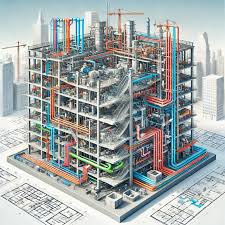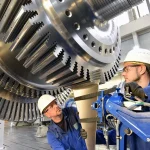Overview:
This course aims to enhance participants’ understanding of how to integrate mechanical and electrical systems in the design of modern buildings. The primary focus is on the importance of coordination among different systems to ensure efficiency, comfort, and safety within buildings. The program covers modern methods and technologies used to combine these systems to maximize the available resources.
Course Objectives:
- Enhance Knowledge: Enable participants to understand the mechanical and electrical systems used in buildings.
- Develop Skills: Learn how to design and plan mechanical and electrical systems in an integrated manner.
- Apply Principles: Understand how to apply fundamental concepts of system integration in construction projects.
- Improve Efficiency: Learn strategies to enhance energy efficiency in mechanical and electrical systems.
- Evaluate Performance: Acquire skills to assess the performance of different systems and how to improve them.
Training Content:
- Introduction to Mechanical and Electrical Systems: Overview of the types of systems used in buildings.
- Mechanical System Design: Study of heating, ventilation, and air conditioning (HVAC) systems.
- Electrical System Design: Exploration of power distribution, lighting, and security systems.
- System Integration: How to coordinate mechanical and electrical systems for optimal performance.
- Modern Technologies: Investigating innovations and modern technologies in system design.
- Case Studies: Analyzing successful projects that demonstrate effective integration of systems in buildings.
Target Audience:
This course is designed for architects, civil engineers, electrical and mechanical engineers, project managers, designers, and any construction professionals seeking to enhance their skills in the integration of mechanical and electrical systems in buildings.






